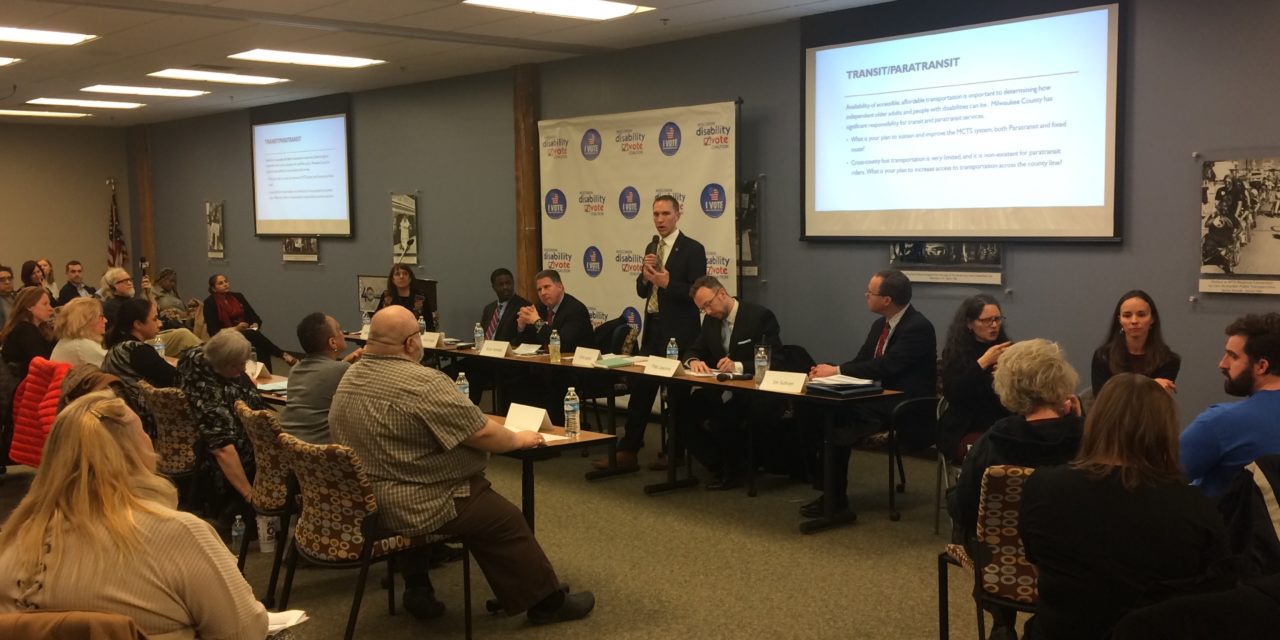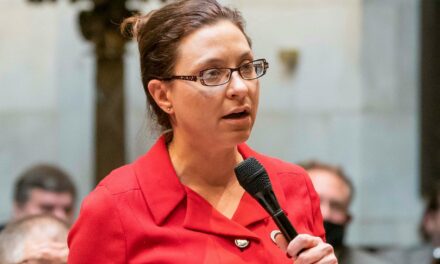
Milwaukee County executive candidates call for investment in community-based services

Candidates running for Milwaukee County executive said Tuesday they’d work to invest in community-based services to prevent more serious and costly mental health issues.
The candidates spoke at a forum sponsored by Wisconsin Disability Vote Coalition and the Milwaukee Mental Health Task Force and co-sponsored by the MIRACLE Network.
Rep. David Crowley, D-Milwaukee, called for “putting more money on the front end and making sure that we’re saving a lot more money on the back end.”
He said the county also needs more culturally competent programming. And he said he’d establish an office that would seek to bring state and federal grants to Milwaukee, which could help support mental health services.
Crowley also called for taking state dollars to expand Medicaid.
“There are federal dollars that we need to go after and bring back to Milwaukee County,” he said. “We know the state of Wisconsin is moving at a snail’s pace when it comes to funding these particular problems.”
Sen. Chris Larson, D-Milwaukee, said the reason why the county is “struggling so much” with mental health is because hospitals don’t see it as “being advantageous to their bottom line.”
Larson described the state’s approach to the opioid epidemic “lackluster at best.”
He called for the state to take federal money to expand Medicaid, establishing Medicare for All at the federal level and using potential money from lawsuits filed against drug companies that make opioids for services.
“It’s better if we go upstream and stop it head on, but it takes resources,” he said. “You do need government funds, you do need private funds and we need to hold those accountable who have helped push this.”
Milwaukee County Board of Supervisors Chairman Theo Lipscomb said he supports investing in mental health on “the front end, early and in the community” rather than in a hospital or the criminal justice system.
He said that the county’s movement toward outsourcing its inpatient services to a private hospital run by Universal Health Services in West Allis will lead to more investments in community services.
But he had concerns that the county hasn’t figured out how it’ll redesign its crisis system as part of the change.
“Time is of the essence there or we will not be ready for that transition when it comes,” Lipscomb said.
Glendale Mayor Bryan Kennedy called for creating “one-stop shopping places” where people can go to meet their needs. Milwaukee County needs to do a better job of integrating care and social services like housing assistance, he said.
“We’ve siloed off so many of these different services in Milwaukee County that we don’t have the ability to integrate the way we should,” Kennedy said. “We need to have a system in which people that come in and could qualify for multiple services aren’t sent from this door to this door to this door to this door, to wait in line multiple times to find out whether or not they qualify.”
Jim Sullivan, director of Milwaukee County Child Support Services, said there are areas of Milwaukee County that are “fundamentally disserved” by the healthcare industry.
“We need to make sure that we’re working with the existing healthcare structure that we have, that we advocate for what’s called disproportionate share hospitals such as Aurora St. Luke’s and we also need to take advantage of some of the tools that are available to us right now,” he said.
Sullivan also called for Medicaid expansion to boost mental health services.
Purnima Nath, founder of Trayix Consulting & Communication and Spindle India, which runs IndiaFest in Milwaukee, said she’d take a holistic approach to mental health, looking at how it interacts with other areas like housing and homelessness.
“When you look at mental health, it’s not just a siloed issue,” she said in an interview. “Housing is involved, crime is involved, the situation at home is involved and the connection to education is also involved.”
The spring primary for the county executive is Feb. 18, with the election April 7.
This article first appeared in the Wisconsin Health News daily email newsletter. Sign up for your free trial here.





